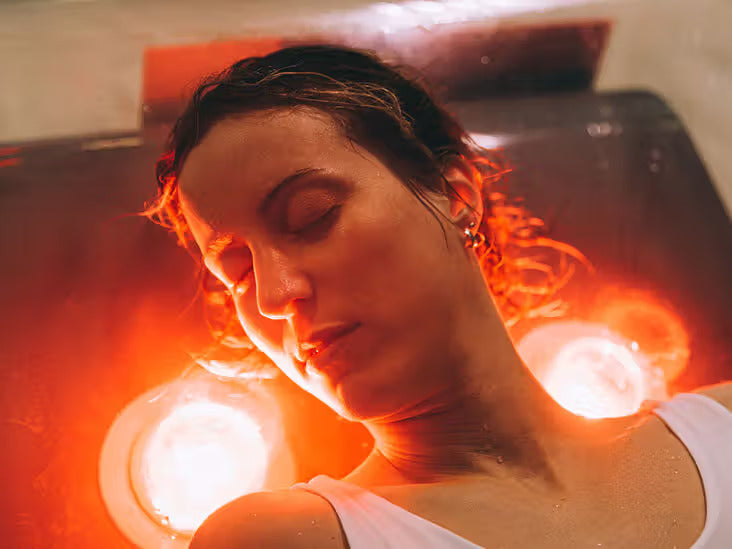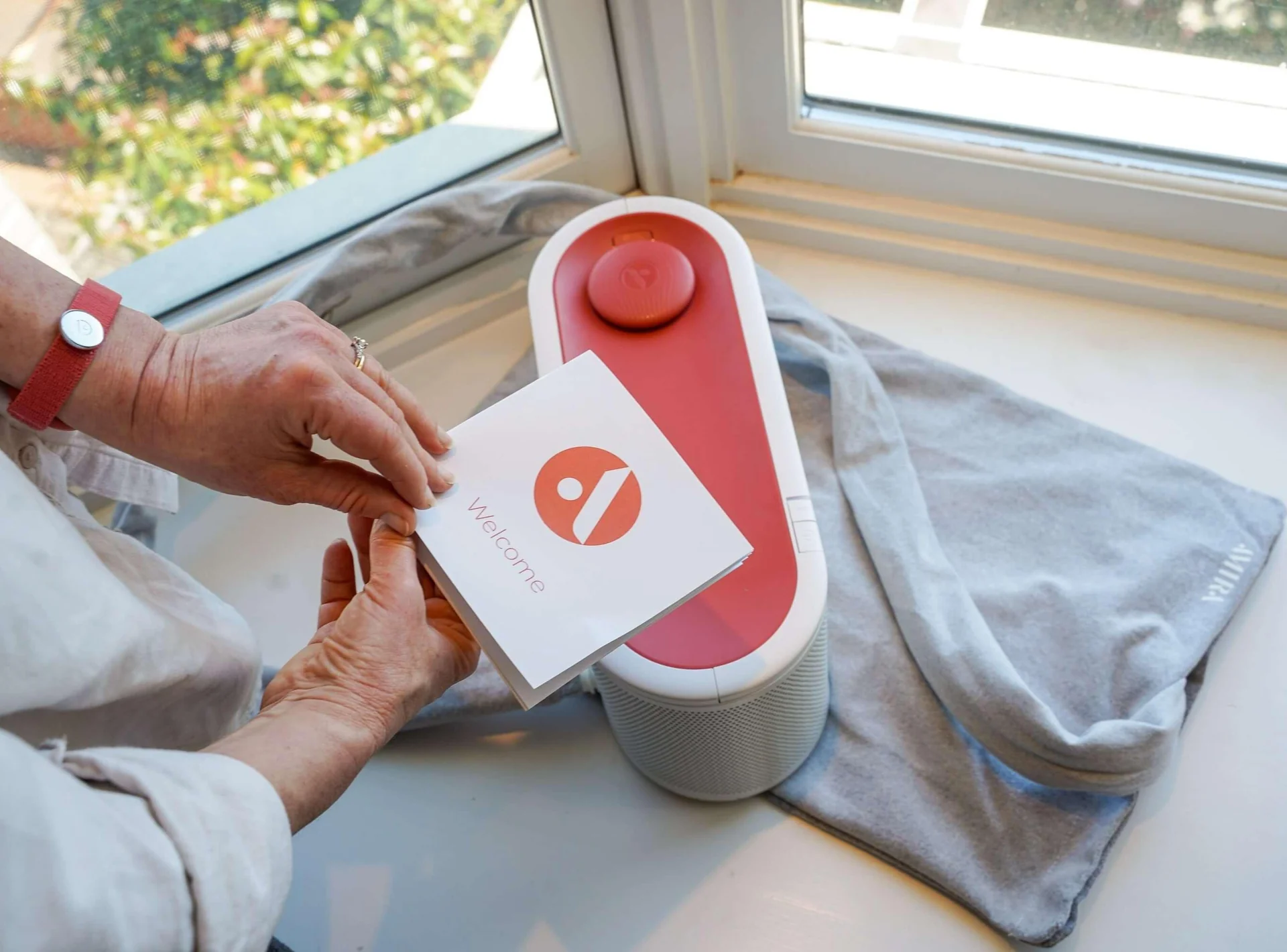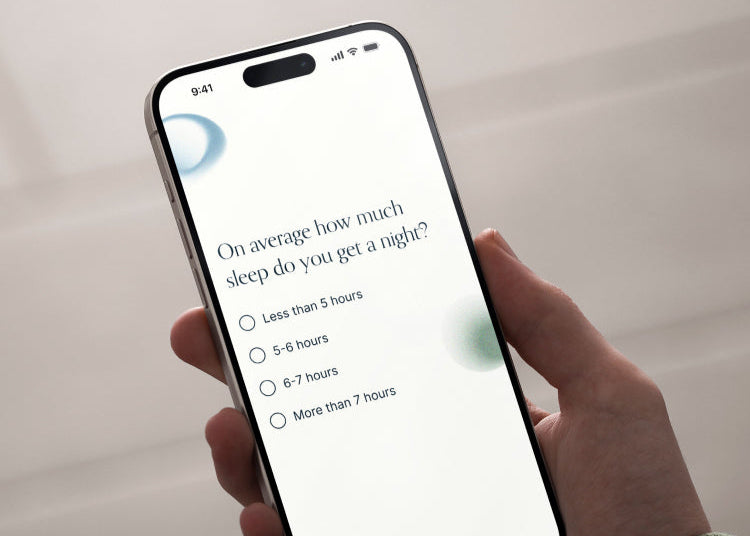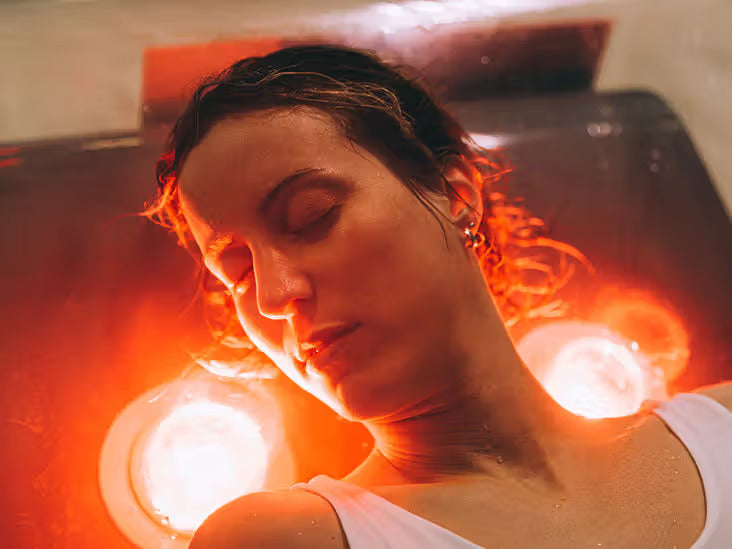
Hot Flashes Without a Fever: What Could Be the Cause?
- Written by: Corentin Hugot
- Reading time: ~5 min
Feeling Hot But No Fever? Understanding Hot Flashes Without Fever
Feeling suddenly, intensely hot, flushed, and sweaty, but your thermometer reads normal? You're not alone, and it's not always just "in your head." Experiencing a sudden wave of heat can be unsettling, especially when you're not fighting off a fever.
This blog post will delve into the world of hot flashes without fever, a common yet sometimes confusing symptom, especially for women. Understanding the potential reasons behind these sensations is crucial, especially for those navigating perimenopause and menopause, to seek appropriate solutions and manage their comfort – particularly when these flashes disrupt sleep and lead to night sweats.
Unpacking the Sensation: Defining Hot Flashes with No Fever
Hot flashes are more than just feeling a little warm. They're a distinct physiological event. But what exactly are they when there's no fever involved?
What Does a Hot Flash Without Fever Feel Like?
Imagine a sudden wave of intense warmth spreading through your upper body, particularly your face, neck, and chest. This warmth is often accompanied by:
- Flushing (reddening of the skin)
- Sweating
- A rapid heart rate or palpitations
- Sometimes, a feeling of chills afterward as your body tries to cool down
The intensity and duration of a hot flash can vary significantly from person to person, lasting anywhere from a few seconds to several minutes.
The Key Distinction: Why Temperature Reading Matters
The crucial difference between a hot flash and a fever is that a hot flash doesn't involve an elevated body temperature. A fever is a sign that your body is fighting off an infection or illness. With hot flashes, your internal thermostat is temporarily misfiring, but your body isn't battling a pathogen. This is why taking your temperature is important. A normal reading confirms that the heat you're experiencing isn't related to an infection.
How Common is This Experience, Especially for Women?
Hot flashes without fever are incredibly common, particularly among women going through perimenopause and menopause. Studies suggest that up to 80% of women experience hot flashes during this transitional phase of life. However, it's important to remember that hot flashes can also occur in men and can be related to other underlying medical conditions.
Is Menopause the Primary Suspect? Investigating Hormonal Causes of Hot Flashes
While other factors can contribute, menopause is often the prime suspect when it comes to hot flashes without fever in women. The hormonal shifts that occur during this time can significantly impact the body's temperature regulation.
The Estrogen Connection: How Fluctuating Hormones During Perimenopause and Menopause Trigger Vasomotor Symptoms
Estrogen plays a vital role in regulating the hypothalamus, the part of the brain that controls body temperature. During perimenopause and menopause, estrogen levels fluctuate dramatically and eventually decline. This hormonal instability can disrupt the hypothalamus's function, making it more sensitive to slight changes in body temperature. As a result, the brain may mistakenly perceive that the body is overheating, triggering a cascade of events that lead to a hot flash – vasodilation (widening of blood vessels), increased heart rate, and sweating – all aimed at cooling the body down, even when it's not actually too hot.
Beyond Menopause: Can Other Hormonal Shifts Be Involved?
While menopause is the most common cause, other hormonal fluctuations can also trigger hot flashes:
- Pregnancy: Hormonal changes during pregnancy can sometimes lead to hot flashes.
- Postpartum: The period after childbirth involves significant hormonal shifts as the body returns to its pre-pregnancy state, potentially triggering hot flashes.
- Certain medications can interfere with hormone levels and contribute to hot flashes.
Night Sweats: When Hot Flashes Disrupt Sleep
Night sweats are simply hot flashes that occur during sleep. They can be particularly disruptive, soaking your clothes and bedding and leading to fragmented sleep. Managing night sweats is crucial for maintaining sleep quality and overall well-being. This is where cooling solutions become incredibly valuable.
Beyond Hormones: Exploring Other Potential Causes Like Anxiety and Hyperthyroidism
While hormonal changes are a leading cause, it's important to consider other potential triggers for hot flashes without fever.
The Role of Anxiety: How Your Nervous System Can Trigger Physical Heat Sensations
Anxiety can significantly impact the body's nervous system, leading to a variety of physical symptoms, including hot flashes. When you're anxious, your body releases stress hormones like adrenaline, which can increase heart rate, blood flow, and body temperature. This can create a sensation of intense warmth that mimics a hot flash. Additionally, anxiety can heighten your awareness of bodily sensations, making you more likely to notice and be bothered by minor temperature fluctuations.
Understanding Hyperthyroidism: When an Overactive Thyroid Gland Causes Heat Intolerance and Flushing
Hyperthyroidism, a condition in which the thyroid gland produces too much thyroid hormone, can also cause hot flashes. Thyroid hormone regulates metabolism, and when levels are too high, it can lead to increased body temperature, heat intolerance, sweating, and flushing. Other symptoms of hyperthyroidism include weight loss, rapid heart rate, anxiety, and fatigue.
Other Medical Conditions to Consider
In rare cases, hot flashes without fever can be a symptom of other medical conditions, such as:
- Carcinoid Syndrome: A rare syndrome caused by tumors that release certain chemicals into the bloodstream.
- Neurological Disorders: Certain neurological conditions can affect the brain's temperature regulation center.
If you're experiencing persistent or unexplained hot flashes, it's always best to consult with a doctor to rule out any underlying medical conditions.
Could Your Medications Be Contributing to Hot Flashes?
Certain medications can cause hot flashes as a side effect.
Identifying Common Culprit Medications
Some common categories of medications that may contribute to hot flashes include:
- Antidepressants: Certain antidepressants, particularly selective serotonin reuptake inhibitors (SSRIs), can sometimes cause hot flashes.
- Blood Pressure Medications: Some blood pressure medications, such as calcium channel blockers and nitrates, can cause vasodilation and flushing.
- Osteoporosis Drugs: Some medications used to treat osteoporosis, like bisphosphonates, have been linked to hot flashes.
- Cancer Treatments: Chemotherapy and hormone therapy for cancer can often trigger hot flashes.
How Certain Medications Cause Vasodilation and Flushing
Many of these medications can cause vasodilation, the widening of blood vessels. This increased blood flow can lead to flushing and a feeling of warmth, mimicking a hot flash. Other medications may affect hormone levels or the nervous system, contributing to hot flashes.
Importance of Discussing Side Effects with Your Doctor
It's crucial to discuss any side effects you're experiencing with your doctor, especially if you suspect your medications are contributing to your hot flashes. Never stop taking a medication without consulting your doctor first, as this could have serious consequences. Your doctor may be able to adjust your dosage or switch you to a different medication with fewer side effects.
Seeking Clarity: The Path to Diagnosis for Feverless Hot Flashes
If you're experiencing bothersome hot flashes without fever, seeking medical advice can provide clarity and guide you towards appropriate management strategies.
When to See a Doctor: Recognizing Persistent or Bothersome Symptoms
It's a good idea to see a doctor if your hot flashes are:
- Frequent and disruptive to your daily life
- Interfering with your sleep (night sweats)
- Accompanied by other concerning symptoms, such as unexplained weight loss, rapid heart rate, or anxiety
- Starting after you've begun a new medication
The Diagnostic Process: What to Expect
Your doctor will likely start by taking a detailed medical history, asking about your symptoms, medications, and any underlying medical conditions. They will also perform a physical exam.
Potential Tests: Blood Work and Ruling Out Other Issues
Your doctor may order blood tests to check:
- Hormone Levels: To assess estrogen, follicle-stimulating hormone (FSH), and luteinizing hormone (LH) levels, particularly if menopause is suspected.
- Thyroid Function: To rule out hyperthyroidism.
Other tests may be ordered to rule out other potential causes of your symptoms.
Finding Relief: Navigating Treatment and Management Strategies
Managing hot flashes without fever involves a combination of lifestyle adjustments, medical treatments, and practical comfort solutions.
Lifestyle Adjustments for Managing Hot Flashes
Simple lifestyle changes can often make a significant difference in reducing the frequency and intensity of hot flashes:
- Diet: Avoid triggers like spicy foods, caffeine, and alcohol.
- Exercise: Regular physical activity can help regulate hormone levels and reduce stress.
- Stress Reduction: Practice relaxation techniques like yoga, meditation, or deep breathing exercises.
- Clothing: Wear loose-fitting, breathable clothing made of natural fibers.
- Environment: Keep your home and workplace cool and well-ventilated.
Medical Treatment Options When Necessary
If lifestyle adjustments aren't enough, your doctor may recommend medical treatments, such as:
- Hormone Therapy (HT): Estrogen therapy can be effective in relieving hot flashes associated with menopause, but it's important to discuss the risks and benefits with your doctor.
- Non-Hormonal Medications: Several non-hormonal medications, such as SSRIs, SNRIs, and gabapentin, can also help reduce hot flashes.
It's crucial to consult with your doctor to determine the best treatment option for you based on your individual needs and medical history.
Cooling Solutions for Comfort, Especially at Night
For many women, especially those suffering from night sweats, cooling solutions can provide significant relief. A cooling mattress pad can help regulate body temperature during sleep, reducing the frequency and intensity of night sweats and improving sleep quality. These pads often use advanced materials and technology to wick away moisture and promote airflow, keeping you cool and comfortable throughout the night.
FAQ Section
Q1: Can stress or anxiety alone really cause physical hot flashes without a fever?
Yes, stress and anxiety can absolutely trigger physical sensations that mimic hot flashes, including feelings of intense warmth, flushing, and sweating, even without an elevated body temperature. This is due to the release of stress hormones and the activation of the nervous system.
Q2: Are hot flashes without fever ever a sign of something dangerous?
In most cases, hot flashes without fever are not a sign of something dangerous, especially for women in perimenopause or menopause. However, in rare cases, they can be associated with underlying medical conditions like hyperthyroidism or carcinoid syndrome. It's always best to consult with a doctor to rule out any serious causes, especially if the hot flashes are persistent, severe, or accompanied by other concerning symptoms.
Q3: How long do menopause-related hot flashes typically last?
The duration of menopause-related hot flashes varies greatly from woman to woman. Some women may experience hot flashes for a few months, while others may have them for several years. On average, hot flashes tend to last for about 7 years, but some women may experience them for much longer.
Q4: What's the difference between a hot flash and a night sweat?
A hot flash is a sudden feeling of intense warmth, usually accompanied by flushing and sweating. A night sweat is simply a hot flash that occurs during sleep, often causing you to wake up soaked in sweat.
Q5: Besides a cooling mattress pad, what are simple tips to cool down quickly during a hot flash or night sweat?
- Drink a glass of cold water.
- Apply a cold compress to your neck or forehead.
- Use a fan to circulate air.
- Wear loose-fitting, breathable clothing.
- Take slow, deep breaths.
- Move to a cooler environment.
Conclusion
Hot flashes without fever are a common experience, particularly for women navigating perimenopause and menopause. While hormonal changes are often the primary culprit, other factors like anxiety, hyperthyroidism, and certain medications can also contribute. Understanding the potential causes of your hot flashes is crucial for seeking appropriate management strategies.
If you're experiencing disruptive hot flashes or night sweats, consult with your healthcare provider to determine the underlying cause and discuss treatment options. In the meantime, explore practical comfort solutions to improve sleep quality and manage nighttime symptoms effectively.
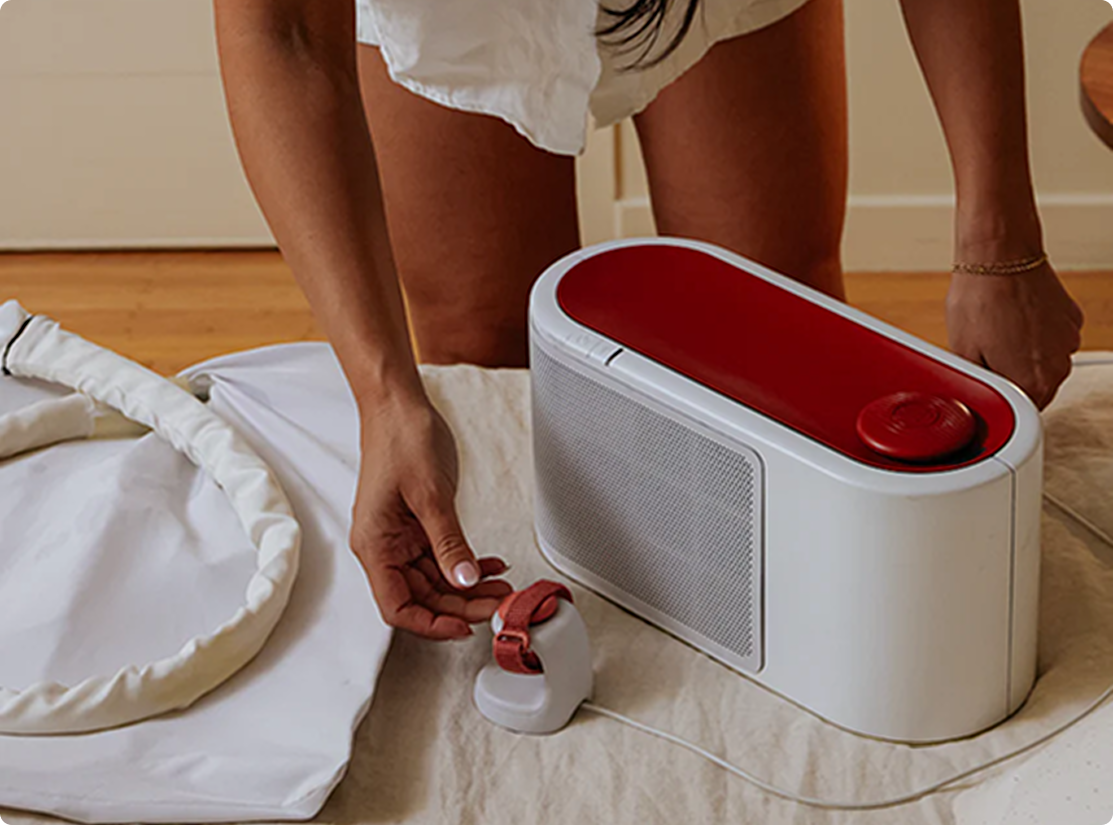
Sleep Cool, Wake Refreshed
Terra’s smart cooling system stops hot flashes before they wake you.
Predicts & cools in seconds
No noise, no interruptions
Wake up refreshed


